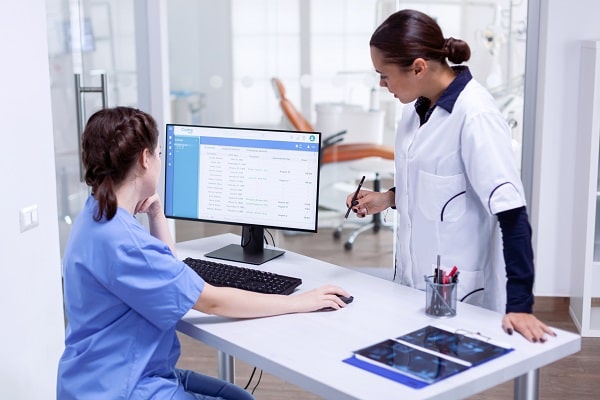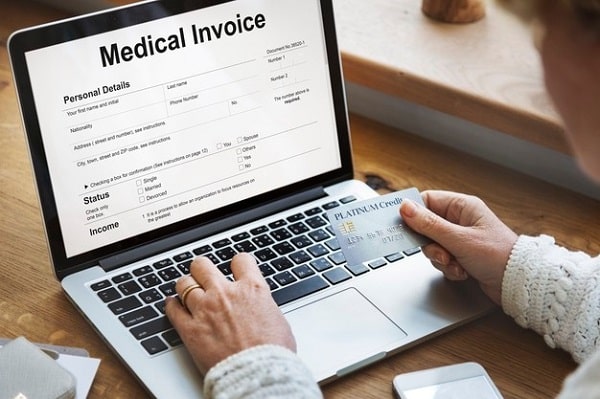Avoid these HIPAA mistakes when texting patients
The medical industry deals with huge data day in and day out. All the dealings with the patients, their bio-data, and other medical records are some of the major segments of data that the medical sector handles regularly. In other terms, the medical units and practices deal with Protected Health Information (PHI), which happens to be the personal health information of the patients.
Being a hub of data, the healthcare industry is also notoriously vulnerable to data breaches. Over 4400 healthcare data breaches of 500+ records have been reported to the HHS' Office for Civil Rights between 2009 and 2021, as per reports. Such infringements of data resulted in the loss, theft, exposure, or impermissible disclosure of 314,063,186 healthcare records.
Though data breaches and thefts occur still, a major portion of them is prevented from occurring with the enactment of the Health Insurance Portability and Accountability Act in 1996.

When did HIPAA come into being?
The signing of HIPAA into law by President Bill Clinton is one of the historical events in the history of the medical industry of the US, which actually keeps a considerable amount of PHI safe from data thefts and breaches.
The existence of HIPAA has resulted in curbing the total volume of data breaches to a large extent.
The 4 main reasons why HIPAA came into being are:
• To assure the health insurance portability
• Minimize healthcare fraud
• Introduce healthcare standards for quality healthcare
• Ensure privacy and security of health information
As HIPAA governs a considerable spread of the communications that are made by medical offices of practices and other medical units, medical staff, and practitioners, most of the HIPAA violation risks also pertain to communication and the various channels through which they are made.
Among all other channels, texting is one such activity that frequently comes under the radar of HIPAA violations for the practices. The texts that are sent are usually sent to the patients but via methods that are not exactly HIPAA compliant texting methods.
Does HIPAA allow texting?
Under HIPAA guidelines, you won't find that texting is prohibited because that simply cannot be true. However, HIPAA regulates the texting methods for the safety of PHI. HIPAA texting needs proper confidentiality and integrity of the PHI, where the levels of security and data encryption shall be in place. Besides, the contents of the text also need to abide by HIPAA guidelines.
The misconception revolving around the fact that HIPAA prevents texting emerged from the complex language that the Privacy and Security Rules are written in. Though the rules do not exactly speak of texting, the HIPAA texting segment mentions certain conditions related to electronic texting in relation to the healthcare industry.
For instance, HIPAA finds nothing wrong if messages are sent via text, but the text should not comprise personal identifiers. Similarly, a doctor can text the patients, but the text should be abiding by the standards set by HIPAA texting.
Some of the major requirements for medical practices while transferring data electronically, i.e., to adopt the practice of HIPAA compliant text messaging are:
• Only the persons who are authorized to handle PHI and who require the information to perform their jobs should have access to the information.
• The authorized users who are accessing the PHI or have access to the same should be monitored by a system. This must be implemented.
• The authorized users who are accessing the PHI or have access to the same should be authenticating their identities with the help of a unique username that is centrally issued and a PIN.
• PHI should be kept from being inappropriately altered or destroyed by implementing proper policies and procedures.
• The data that is to be transferred beyond the internal firewall of an organization must undergo proper encryption, which will ensure that it is rendered unusable, in case it is in any way, intercepted in transit.
So, as we have that HIPAA is an act that doesn't prevent texting totally, but imposes certain limitations to the parties and the ways in which it is done, it is obvious that you are curious to learn about how you can stay HIPAA compliant.
Don't worry because we have brought up exactly that in the section that follows.
HIPAA compliant text messaging mistakes that practices can avoid!
For a practice owner or the admin of a medical office, it is important to know the practices that ensure HIPAA compliant texting. Though texting is indeed convenient and the patients no doubt, rely on texts and want messages sent to them, monitoring the messages is not easy for the practices. Mistakes in the texting or messaging part of communication are quite common today.Messaging mistakes mostly occur due to the lack of information. Yes, text messages should obviously be a part of medical practices but they need to ensure that these messages comply with the standards of the Health Insurance Portability and Accountability Act (HIPAA).
Here are some prominent errors that one should stay off from in order to develop a HIPAA compliant text messaging system:
Sharing the PHI without prior permission
The patients want that their practices send them text messages and emails because that is more convenient indeed. Around 70% of patients mentioned that they will go for the medical providers who send emails or text messages, especially when it comes to preventive or follow-up care.
Research also revealed that over 55% of patients expect doctors to send automated text messages, voice messages, or email reminders, for scheduling appointments or taking medications.
All of these data reveal how much the patients want to ask questions and hold conversations via messages. However, before starting the conversations with them the medical practices should ensure that they have confirmed or opted for sharing PHI via text.
Giving access to the PHI to all the employees
Access to the PHI must be limited. Sharing the PHI with all the medical staff or employees should be a strict no-no. This can be prevented by ensuring that a secure platform has the PHI, access to which is limited to certain trustworthy employees/employees.
Breaches have also been pointed out even in secure systems. Therefore, it is important that the organizations share access only with the right/authorized employees.
Messaging wrong contacts
Even after they follow HIPAA compliant texting methods, HIPAA compliant messaging apps, and text messaging practices, medical practices are often found violating the HIPAA guidelines. If you are wondering why then it is due to the messages that are sent to the wrong addresses or contacts.
As per recent surveys, 38% of people who text have been responsible for sending text messages to the wrong people. This is a common fact in the medical industry too.
This mostly happens if the medical staff are not trained enough, if they are in a hurry, or if the medical software systems are not up to the mark. However, with GrowPractice's medical software systems that are integrated with HIPAA compliant text messaging apps, you can rest assured of always being in tune with HIPAA compliant practices.
Texting contacts that haven't opted in
Another obvious mistake that is found to be violating HIPAA compliant text messaging methods is the error in texting that creeps in. It has been found that on several occasions the practices message the patients who haven't opted in to share PHI with their provider.
This is a big mistake on the part of the medical practices, which not only annoys the patients and ruins their credibility and reputation but also proves to be a hefty case against the practice if registered in a court of law.
To avoid this, you can either usher the patients to opt-in by sending them emails, text messages, or website popups that will help them chat with their provider and will ultimately lead them to opt for sharing the PHI with them. Else, you can simply ask them to opt-in if they want to further discuss their diseases, medical facilities, and other pain points they might have faced.
Using unsecured systems for texting patients
Using systems that are not secure enough is a growing hazard for medical providers. Making use of unsecured systems and patient portals is time-consuming, and can lead to data breaches, loss of data, loss of time and money, and more.
These unsecured systems often lead to the violation of the HIPAA guidelines for the medical units and practices.
Using mobile phones or practice management software that is not secure, using old computers and laptops or personal devices are common culprits in such mistakes. Therefore, it is important for medical practices to primarily look after the practice and patient management software system that is in use. These systems must abide by HIPAA compliant text messaging methods.
However, finding such systems that comply with HIPAA text messaging practices is not very easy. This is why GrowPractice has come up with effective practice and patient management software that are HIPAA compliant and offers a wide range of benefits both for the patients and the practices.
Practice and Patient Management Software Solutions from GrowPractice Ensure HIPAA Compliance!
GrowPractice is one of the leading providers of practice and patient management software systems that help practices gain optimum HIPAA compliance and grow in terms of patients and revenue.
Here are some advantages that the GrowPractice patient and practice management solutions offer:
• Highest level of security
• Complete HIPAA compliance
• Secure data encryption methods
• Quick and efficient online billing process
• Secure patient reminders and followups
• Automatic updating of patient records
• Auto-filling of rescheduled or canceled patient appointments
• HIPAA-compliant two-way texting methods
• Secure patient appointments, intakes, and check-ins
GrowPractice extends all of the above-mentioned benefits and more for patients. Recent reports have noted an 85% reduction in negative online reviews for practices that have adopted GrowPractice's patient and practice management software systems. This is how the medical office software solutions from GrowPractice are revolutionizing medical practices. So, what are you waiting for? Get your systems updated too and start dominating your league. 85% reduction in negative online reviews. Visit our website for more details!



